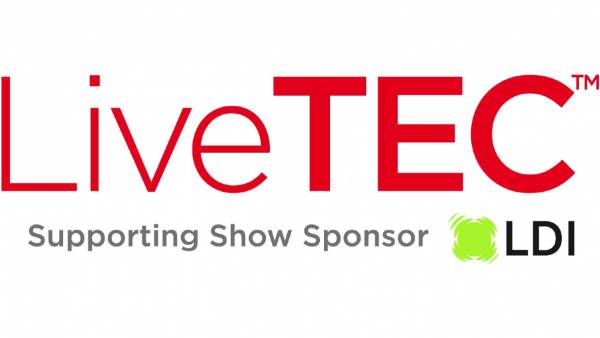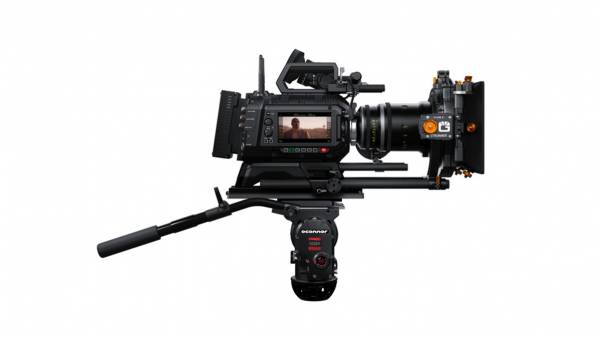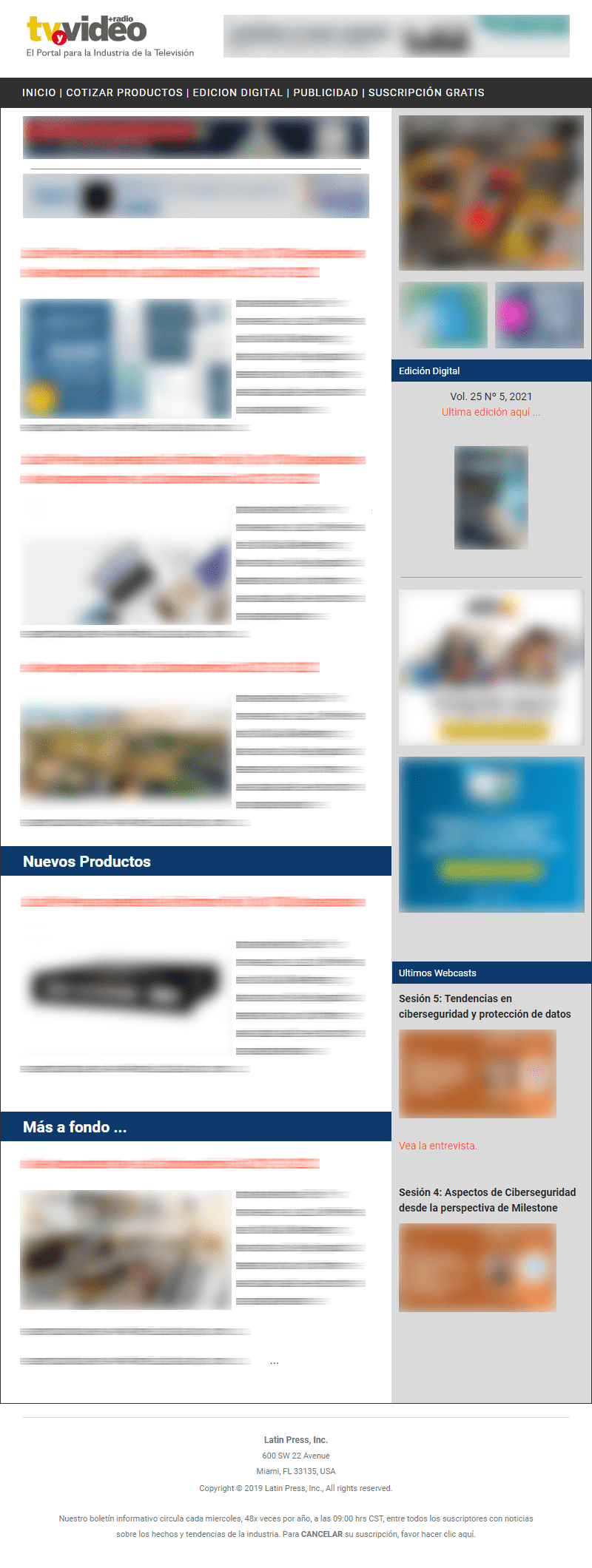For more than fifteen years there have been music libraries, services offered by companies that produce musical themes that sell their productions, including the respective licenses and copyrights, to be used in the audiovisual industry, recording studios, educational institutions, government agencies or audiovisual departments of companies and public or private entities.
These companies are in the business of creating and representing a wide variety of products and services ranging from music production, sound effects, private collection classifications to software tools for audio systems.
According to their promotional information, they have creative groups that include full-time music composers, arrangers, producers and sound engineers. In addition, they hire consultants and experts in laws related to copyright and music licensing.
As for the options they offer, they have all kinds of music that can be used to accompany business topics, sports IDs, radio or television commercials. They also provide treatment alternatives for contemporary productions, comedy styles, light music or fully orchestrated themes.
Currently, with the rise of the Internet, they are even more within the reach of filmmakers and television producers. International companies such as Network Music, Killer Tracks, Narrator Teach Music, Megatrax, TV Music and Non Stop Music –among others– are recognized for their reputation as innovators and leaders in the evolution and development of sound and musical resources.
A music production library includes annual licenses for unlimited use. It features several musical themes in full versions of several minutes, as well as cuts of different duration prepared for specific applications. To provide complete information to potential users they offer very detailed catalog and usually include a promotional CD-Rom at no additional cost.
With the complete library contract, regular updates are received. For the production companies there is a regular cost of the license – whose validity can vary in between one or several years – the cost is close to $ 3,500 dollars and for educational institutions special conditions and prices are offered.
For some producers this service is very agile and practical. First of all, the dictionary is consulted where the complete description of the music is found, the sensation produced by each theme, its location within the collection and its duration. It also uses a thematic catalog that offers guidance on the musical style: industrial, specialized, new age, sentimental, classical music, in short.
But where is the creativity, the identity, "the personal stamp" of the production? What do the producers and, on the other, the composers of the soundtracks for television think of this new and practical system?
César Tulio Ossa, Director of a university audiovisual production center, believes that this service basically has two advantages: comfort because music is heard, selected and edited. And economy since it has a whole range of possibilities for a fairly low price. In addition, the selected topics can be included in radio or television productions, not only to be broadcast between closed audiences, but even to transmit them by open systems without any restriction since it has been paid for the respective copyrights.
Described in this way, the matter is quite simple compared to the process followed by the composers of musical themes for telenovelas and serials. Let's see : "Initially, I read the synopsis and try to get in touch with the subject. Then I ask the filmmakers and producers what music they "hear" in their novel, how they want it, how they think the music that accompanies the scenes should be. Because it is not enough to read a synopsis to know what music to play. It's very subjective. I like that they focus on what they want so that they feel satisfied" says "Juancho" Pulido ex-member of the musical group Compañía Ilimitada and currently responsible for the musicalization of the realizations of the Caracol Channel.
He continues: "I have a very own methodology: I present a number of songs and I seek the opinion of the producer. It's almost like fine-tuning the issue. I rehearse based on the information provided and try to be generous with the producer. Although it is a very subjective thing, I always ask if they agree. It is a good thing for the production company, the filmmakers and for the production team. Then comes my personal taste. Thus, the novel is taking on a special atmosphere... it is neither more nor less; it's a special point. There is a lot of intuition. There is nothing free."
To remember what has been the historical development of the musicalization of telenovelas and serials, we talked with Jaime Valencia considered as one of the first composers in charge of creating, not only the main theme of the work, but also all the incidental music for a telenovela in Colombia. "At that time only the main theme was made. For incidental music, that is, the one that accompanies the scenes, discs were used, usually movie discs. And you saw the people in the programmers looking for this kind of help.
Now, the musical development for television, the rise of the video-clip genre and the technological possibilities have allowed the work of the musician to be much more respected and valued. The presence of this new service has created a much stronger competition but allows the creative musical development to have better quality conditions.
Valencia notes another important aspect:" the musicalization is not done in an ideal way because you work very much over time, and if these soap operas were made thinking less about the raiting – because unfortunately that's how you think here – then you could work more calmly. The ideal production would be to make a video and work it as movies are made: review the video calmly and sound about what you are seeing: that would be ideal"
Let's analyze the issue of musicization from the economic point of view.
According to Pulido "When you get into these series, there's a lot of music you have to make. While a jingle lasts thirty seconds and a song three minutes, a novel lasts hours and hours and hours... The part of the economy is very different because while for a jingle 4 or 5 hours of study are spent, a song lasts 10, a novel also lasts hours and hours ..., While one composes themes for example, of sadness, nostalgia, feeling, suspense, I offer the directors several alternatives so that they feel comfortable and can put the different music that one elaborate, in your scenes.
Depending on the duration of each scene, the music is produced: scenes of 3 seconds, 20, 5. You have to make the topics for each one. That requires understanding the subject, the characters and requires a lot of studio work."
What do our interviewees think of music bookstores?
For Juancho Pulido, music bookstores "They take away the musician's job. In addition, these productions are good but lack personality because I believe that each production needs its own music. And with the use of music from bookstores, everything begins to be standardized and everything sounds the same, because it is a universal sound. On the other hand I think it's a great tool... to get out of the problem...! Being really objective, I think that makes the work easier but the composer is not benefiting from those policies and what the production requires is something of its own, something original, something that can help the production a lot."
His opinions are shared by Jaime Valencia who considers that the advantage is in the ease of use, and the disadvantage in the lack of exclusivity. "One can hear the same theme in different productions which takes away identity and strength to memorability, to the memory of a product. But, especially because of the economy, people buy it. I think over time that's negative."
After this brief analysis, we can conclude that music libraries can be a useful tool for audio and video productions with a restricted circulation, to make audiovisuals, to make reports within a company; sometimes they facilitate the work of producers and present multiple possibilities for low price.
But they definitely don't guarantee exclusivity or offer identity. And, there is no doubt that they reduce the possibilities of work and artistic development to the composer and musical creator.
























Leave your comment